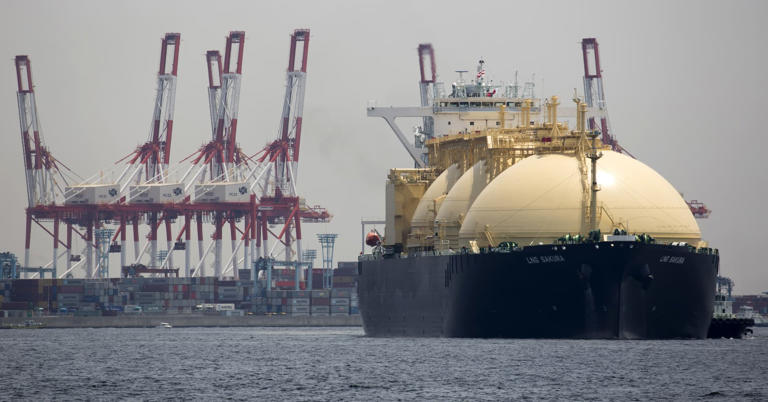Natural gas prices have experienced a significant downturn amid a global oversupply, exacerbated by a milder-than-anticipated winter season. The diminished demand for heating, particularly in key liquefied natural gas (LNG) consuming regions, has contributed to the downward pressure on prices.
The recent surge in LNG activity, characterized by heightened prices and profits, has prompted substantial investment in the sector. Morgan Stanley notes that the industry is witnessing an unprecedented expansion, with over 150 million tonnes per annum (mtpa) of LNG capacity currently under construction. This surge in capacity, set against a market already exceeding 400 mtpa, signals substantial supply growth and underscores the potential for significant oversupply in the gas market in the years ahead.
Currently, natural gas prices are hovering around $1.83 per metric million British thermal unit (MMBtu), reflecting a notable 22% decline since the beginning of the year. The warmer-than-usual winter conditions in key LNG-consuming regions have dampened demand for heating, further contributing to the downward trajectory of gas prices.
Zhi Xin Chong, S&P Global’s head of emerging Asia gas and LNG markets, highlighted the impact of the mild winter on global natural gas prices. Elevated storage levels, resulting from the warmer weather and reduced demand, have exerted downward pressure on prices since October.
Notably, the United States, the largest consumer of LNG globally, experienced its warmest winter on record, while Europe and Japan also saw temperatures well above average. In fact, Europe recorded its second warmest winter temperature, while Japan’s average winter temperature was 1.27 degrees Celsius higher than normal, marking the second warmest winter on record for both regions.
Against this backdrop, benchmark natural gas spot prices plummeted to an all-time low of $1.72 per MMBtu in February. However, these lower prices present opportunities for certain stakeholders, signaling potential shifts in market dynamics and investment strategies amid the evolving landscape of the natural gas industry.
The impact of low natural gas prices varies across different countries, with Europe emerging as a primary beneficiary of the current market conditions. According to Zhi Xin Chong, countries in Europe stand to benefit the most from the lower prices, particularly in light of Russia’s supply curtailment. With Europe’s LNG imports expanding to 35% of its total gas supply mix following the disruption in Russian supplies, the affordability of fuel imports is crucial, especially considering that a significant portion is purchased on a spot price basis.
India and Southeast Asia also stand out as key beneficiaries of the lower LNG prices. Morgan Stanley identifies India and Thailand as among the primary beneficiaries, given that imported gas constitutes a substantial portion of their energy supplies—ranging from 30% to 50%. India, in particular, has a highly elastic demand for gas, meaning that consumers are likely to increase their purchases as prices decline. Thailand, on the other hand, ranks among the top gas consumers per capita among emerging market economies.
Despite the bearish fundamentals for prices stemming from ample LNG storage capacity globally, there is potential for increased demand from second-tier and emerging players such as China. Rystad Energy’s senior analyst, Lu Ming Pang, suggests that low prices may entice these players back into the market, potentially leading to a pickup in demand.
Overall, while the current market dynamics point towards a price floor due to factors such as increased demand from certain regions and the affordability of fuel imports, the precise implications for different countries depend on their energy consumption patterns, import reliance, and economic elasticity to price changes.
